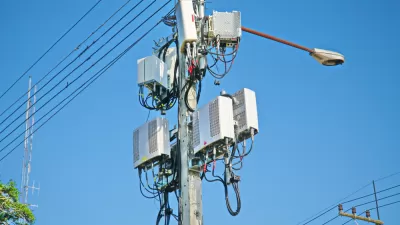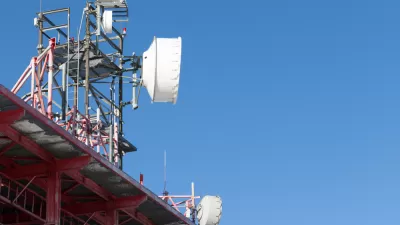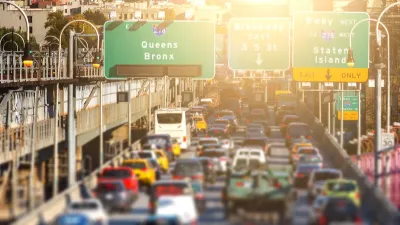Telecom companies don’t want to compete with local governments to provide Internet to residents, but a recent rule by the federal government allows them to do just that. Pushback has come from an unlikely source: state attorneys general.
"Earlier this year, the Federal Communications Commission voted to ease the way for cities to become Internet service providers," according to an article by Leticia Miranda. That decision came despite lobbying by the cable and telecom industry, which continue to resist the law. In fact, the industry has found support in resisting municipal broadband from an unlikely source: state governments.
According to Miranda, "attorneys general in North Carolina and Tennessee have recently filed lawsuits in an attempt to overrule the FCC and block towns in these states from expanding publicly funded Internet service." The lawsuits by North Carolina and Tennessee are just the latest examples of states allying with cable and telecommunications companies. "Roughly 20 states have restrictions against municipal broadband," reports Miranda.
Miranda provides details about the current lawsuits, but also notes the growing trend of lobbyists and contributors targeting state attorneys general, as reported in a New York Times article by Eric Lipton from October 2014.
FULL STORY: How States Are Fighting to Keep Towns From Offering Their Own Broadband

Alabama: Trump Terminates Settlements for Black Communities Harmed By Raw Sewage
Trump deemed the landmark civil rights agreement “illegal DEI and environmental justice policy.”

Planetizen Federal Action Tracker
A weekly monitor of how Trump’s orders and actions are impacting planners and planning in America.

The 120 Year Old Tiny Home Villages That Sheltered San Francisco’s Earthquake Refugees
More than a century ago, San Francisco mobilized to house thousands of residents displaced by the 1906 earthquake. Could their strategy offer a model for the present?

In Both Crashes and Crime, Public Transportation is Far Safer than Driving
Contrary to popular assumptions, public transportation has far lower crash and crime rates than automobile travel. For safer communities, improve and encourage transit travel.

Report: Zoning Reforms Should Complement Nashville’s Ambitious Transit Plan
Without reform, restrictive zoning codes will limit the impact of the city’s planned transit expansion and could exclude some of the residents who depend on transit the most.

Judge Orders Release of Frozen IRA, IIJA Funding
The decision is a victory for environmental groups who charged that freezing funds for critical infrastructure and disaster response programs caused “real and irreparable harm” to communities.
Urban Design for Planners 1: Software Tools
This six-course series explores essential urban design concepts using open source software and equips planners with the tools they need to participate fully in the urban design process.
Planning for Universal Design
Learn the tools for implementing Universal Design in planning regulations.
Clanton & Associates, Inc.
Jessamine County Fiscal Court
Institute for Housing and Urban Development Studies (IHS)
City of Grandview
Harvard GSD Executive Education
Toledo-Lucas County Plan Commissions
Salt Lake City
NYU Wagner Graduate School of Public Service





























